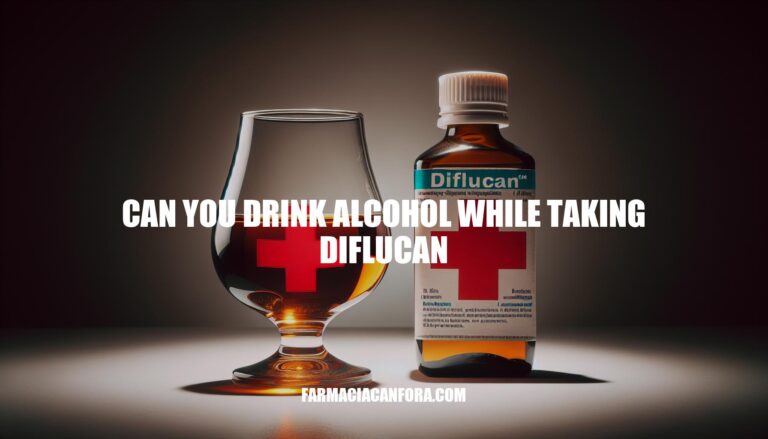


When taking Diflucan (fluconazole), it’s crucial to understand the potential interactions with alcohol. While there is no direct drug interaction, consuming alcohol can weaken the immune system and exacerbate side effects like nausea and stomach pain. Prioritizing your health by avoiding alcohol during treatment can help ensure the medication’s effectiveness and reduce the risk of complications.
Diflucan (generic name: fluconazole) is an antifungal medication used to treat various fungal and yeast infections, such as vaginal yeast infections, oral thrush, and cryptococcal meningitis. It works by inhibiting the growth of fungi, preventing them from forming a protective covering, which ultimately stops their growth and survival.
Alcohol and Diflucan: It’s important to know whether you can drink alcohol while taking Diflucan because combining the two can increase the risk of side effects like dizziness, liver damage, and stomach issues. Reducing or avoiding alcohol can help ensure the medication works effectively and minimizes potential adverse effects.
While there is no direct fluconazole-and-drink-alcohol”>drug interaction between alcohol and Diflucan (fluconazole), combining the two is generally not recommended. Here are the key points:
Efficacy: Alcohol can impair liver function, which may affect the metabolism of Diflucan, potentially altering its efficacy. This can compromise the treatment of fungal infections and prolong the recovery process.
Immune System: Alcohol can weaken the immune system, making it harder for your body to fight off infections.
Side Effects: Both alcohol and Diflucan can cause side effects such as nausea, headache, and abdominal pain. Drinking alcohol while taking Diflucan may exacerbate these side effects.
Liver Function: Since both alcohol and Diflucan are processed by the liver, consuming alcohol can increase the risk of liver-related side effects.
It’s best to avoid alcohol while taking Diflucan to ensure the medication works effectively and to minimize potential side effects. If you have any concerns, it’s always a good idea to consult with your healthcare provider.
When taking Diflucan (fluconazole), it is generally recommended to avoid consuming alcohol. Combining alcohol with Diflucan can increase the risk of side effects such as stomach pain, nausea, vomiting, headache, and flushing. Additionally, alcohol can impair liver function and potentially affect the metabolism of Diflucan, reducing its effectiveness.
Healthcare professionals advise against drinking alcohol during Diflucan treatment to ensure the medication works effectively and to minimize adverse effects. Always consult your healthcare provider for personalized advice.
When taking Diflucan (fluconazole), it’s best to avoid consuming alcohol due to potential interactions that can weaken the immune system, exacerbate side effects, and impair liver function.
Combining alcohol with Diflucan may increase the risk of:
To ensure the medication works effectively and minimize adverse effects, it’s recommended to consult with a healthcare provider for personalized advice.